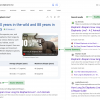Choosing the right accounting software is crucial for the success of your business. With so many options available, it can be overwhelming to make a decision. However, it’s important to focus on the key features that truly matter.
A user-friendly interface is essential to ensure efficient navigation without the need for extensive training. This is particularly important for small businesses without dedicated accounting teams. Look for software like QuickBooks Online that offers a straightforward dashboard.
Comprehensive accounting tools are the core of any accounting software. Make sure the software includes detailed income and expense tracking, automated receipt scanning, invoice payment processing, and inventory management. If you want to consolidate software, choose one that also has built-in payroll processing.
Integration capabilities with other tools and services, such as bank accounts, payment processing, and ecommerce platforms, are critical. This streamlines processes, eliminates repetitive tasks, and minimizes errors. QuickBooks Online, for example, integrates with banking institutions and apps to avoid data duplication.
Security features are essential to protect your sensitive financial data. Look for software that provides strong protection, including bank-grade encryption and multi-factor authentication.
Scalability is crucial as your business grows. Choose accounting software that can accommodate more complex financial management needs without requiring a system change. Consider international capabilities and support for third-party auditing.
Different business types benefit from specific accounting software features. Retail businesses should look for features like inventory management and point-of-sale integration. Service-based businesses need time tracking and project management tools. Freelancers benefit from simplified tax preparation and invoicing/payment processing. Manufacturing businesses need cost accounting and supply chain management features. Nonprofit organizations require fund accounting and grant management features. Construction companies benefit from job costing and progress billing capabilities.
Accounting software offers many benefits compared to manual methods. It enhances accuracy by minimizing human errors. It saves significant time by automating routine tasks. It provides immediate financial insights through analytics tools. It streamlines tax handling and improves financial management. It also facilitates audits and compliance. Scalability allows the software to grow with your business.
Some common features of accounting software include budget creation tools, expense tracking, financial forecasting, variance analysis, and reporting dashboards. Businesses also need features that support double-entry financial reporting, legal compliance, invoicing, payroll processing, tax preparation, and financial reporting.
Computerized accounting software typically includes automated entries, real-time financial monitoring, data backup and recovery systems, user access controls, and customizable reports. These features streamline financial management and provide greater control over business finances.






